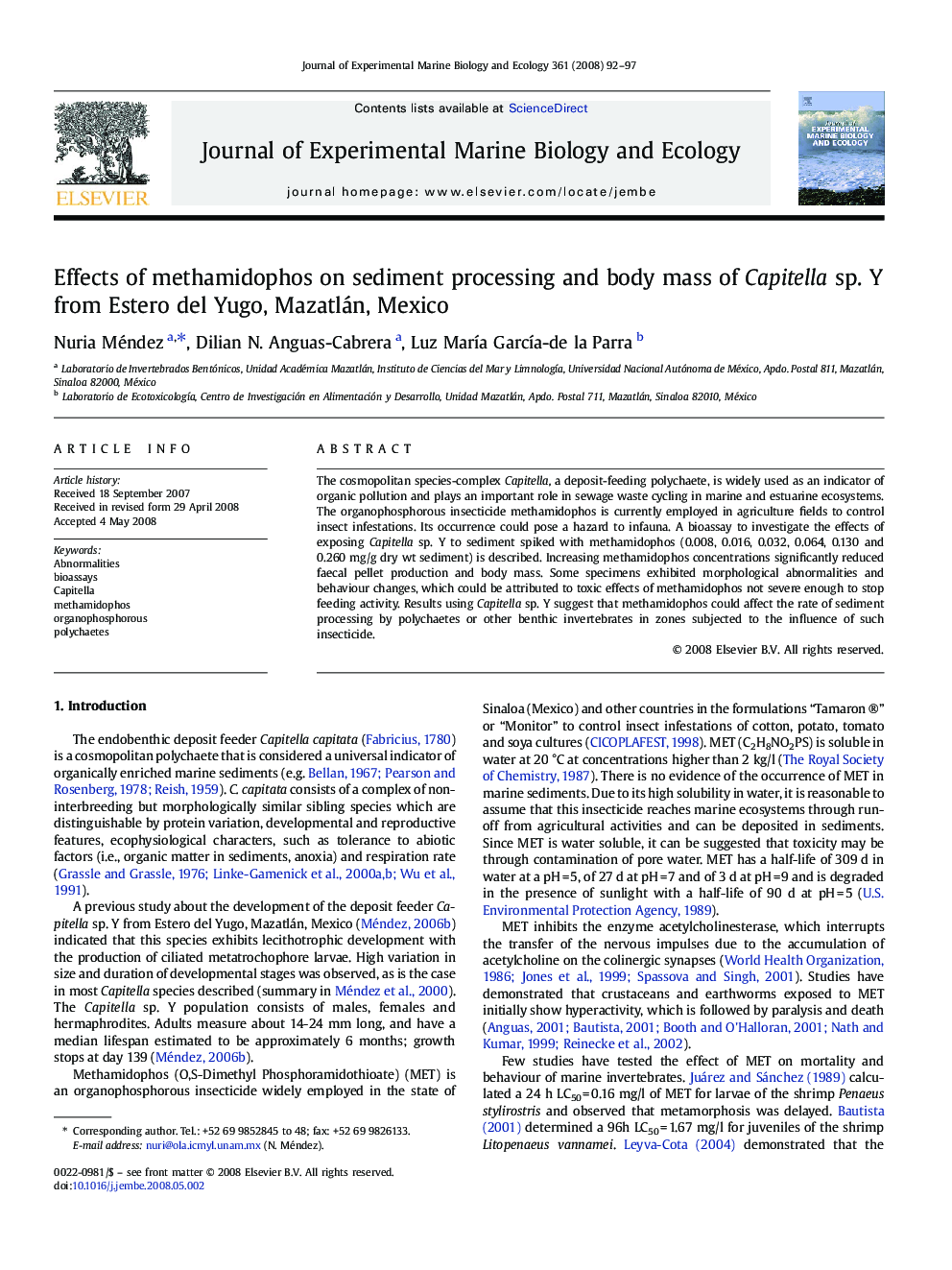| Article ID | Journal | Published Year | Pages | File Type |
|---|---|---|---|---|
| 4397163 | Journal of Experimental Marine Biology and Ecology | 2008 | 6 Pages |
The cosmopolitan species-complex Capitella, a deposit-feeding polychaete, is widely used as an indicator of organic pollution and plays an important role in sewage waste cycling in marine and estuarine ecosystems. The organophosphorous insecticide methamidophos is currently employed in agriculture fields to control insect infestations. Its occurrence could pose a hazard to infauna. A bioassay to investigate the effects of exposing Capitella sp. Y to sediment spiked with methamidophos (0.008, 0.016, 0.032, 0.064, 0.130 and 0.260 mg/g dry wt sediment) is described. Increasing methamidophos concentrations significantly reduced faecal pellet production and body mass. Some specimens exhibited morphological abnormalities and behaviour changes, which could be attributed to toxic effects of methamidophos not severe enough to stop feeding activity. Results using Capitella sp. Y suggest that methamidophos could affect the rate of sediment processing by polychaetes or other benthic invertebrates in zones subjected to the influence of such insecticide.
